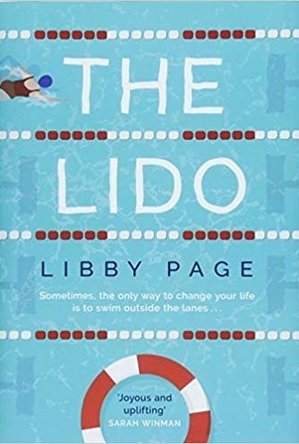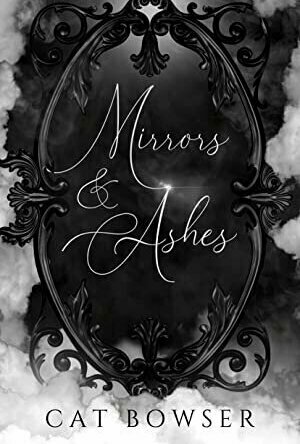
The Lido
Book
Kate is a twenty-six-year-old riddled with anxiety and panic attacks who works for a local paper in...

The Invisible Heiress
Book
A psychiatric patient with a dark secret Preston Blair, a blogger with a dark sense of humor, is...
crime fiction contemporary suspense thriller adult

Their Obsession (Four Mercenaries #2)
Book
--- Loved. Protected. Shattered. --- Clover has found love with not one man, but four. He never...
Dark LGBTQ+ Harem Romance

Widdershins (Widdershins #1)
Helen Steadman and Christine Mackie
Book
The new audio book of Widdershins is narrated brilliantly by talented actor, Christine Mackie, from...
Historical Fiction Witches

Cliff Diver (Emilia Cruz Mysteries #1)
Book
Acapulco’s first female police detective dives into an ocean of secrets, lies, and murder when she...
Mystery Police Procedural

The Truth about Kadenburg (The Kadenburg Shifters #1)
Book
26-year-old Presley Goult's life is anything but ordinary. Her mother abandoned her as a toddler...
Paranormal Romance
ClareR (6081 KP) rated While Paris Slept in Books
Feb 23, 2023
Jean Luc Beauchamp is put in an impossible situation as soon as the Nazis occupy France. He has a deformed hand, and if he shows any kind of weakness it could mean his death. But to stay working on the railways brands him as a collaborator. Someone who has facilitated the Holocaust.
So when a woman thrusts a tiny baby at him as she is put on a cattle truck, Jean Luc does the only thing he can do.
He and his girlfriend (and later, wife) begin a perilous journey , eventually settling in 1950’s California. In 1953, Jean Luc is questioned about his role in the war, and is told something that will change his life and that of his family forever.
We switch between the two timelines of wartime France and and the present day (1950’s) California and Paris.
It’s an unforgettable story of resilience, secrets and survival. All actions on both sides of the story were all for the love of a child. Oh, how I cried (this seems to be becoming more and more frequent lately!)!
Wonderful storytelling ❤️

No Pistol Tastes the Same by Jacob Paul Patchen
Book
JP’s pistol tastes like bourbon. Sergeant JP Grimm didn’t pull the trigger. Now his Marine...
Suspense Military PTSD
Merissa (13786 KP) rated Mirrors and Ashes: A Snow White Retelling in Books
Mar 6, 2022
Ember is the main female and she has a lot to put up with from her mother, which she is made to believe is her fault. When things in the kingdom start going wrong, Ember is the one they blame. She has made friends with the Dwarves though and is welcomed among them when she escapes the death that waits for her. Through them, she learns about who she is and what love truly is, and what forms it can come in. Romance plays a part here but is not the focus.
This was very well-written, with plenty of depth and detail, giving this a polished edged. I loved the Dwarven way of life, their language, their customs, etc. I loved seeing the growth of Ember from a child, to a woman of two cultures.
The pacing was perfect for the story, and it always flowed and never faltered. A great retelling that I thoroughly enjoyed and have no hesitation in recommending.
** same worded review will appear elsewhere **
* A copy of this book was provided to me with no requirements for a review. I voluntarily read this book, and the comments here are my honest opinion. *
Merissa
Archaeolibrarian - I Dig Good Books!
Lyndsey Gollogly (2893 KP) rated Dawning Ascent ( The Pearson Prophecy book 1) in Books
Oct 24, 2022
Kindle
Dawning Ascent ( The Pearson Prophecy book 1)
By Jen L. Grey
⭐️⭐️⭐️
Power comes with a price.
Treated like an outcast in her own kingdom, Ariah learned to live in the shadows. But as she comes into her powers, she catches the eye of her life long crush and an unlikely ally. Trusting either of them could help her along a dangerous journey... or could bring her journey to a dangerous end.
When enemies come to light and distrust spreads, Ariah's safety is put in jeopardy. If she places her trust in the wrong people, her hidden powers will be unveiled to those who wish to use them against her.
To survive, Ariah must learn who has her best interests at heart. If she chooses wrong, it could mean not only her own death, but the crumbling of the entire country.
I did enjoy this book it had a good premise and the characters were easy to get along with. My one issue was this, the world building suggested it was very fairytale kingdom without modern technology etc which was great! But the author then throws in a coffee machine and a shower yet things like hospitals and modern equipment is not there. Just didn’t really make sense to me and took away from that fairytale feeling. It should be all or nothing I think.


